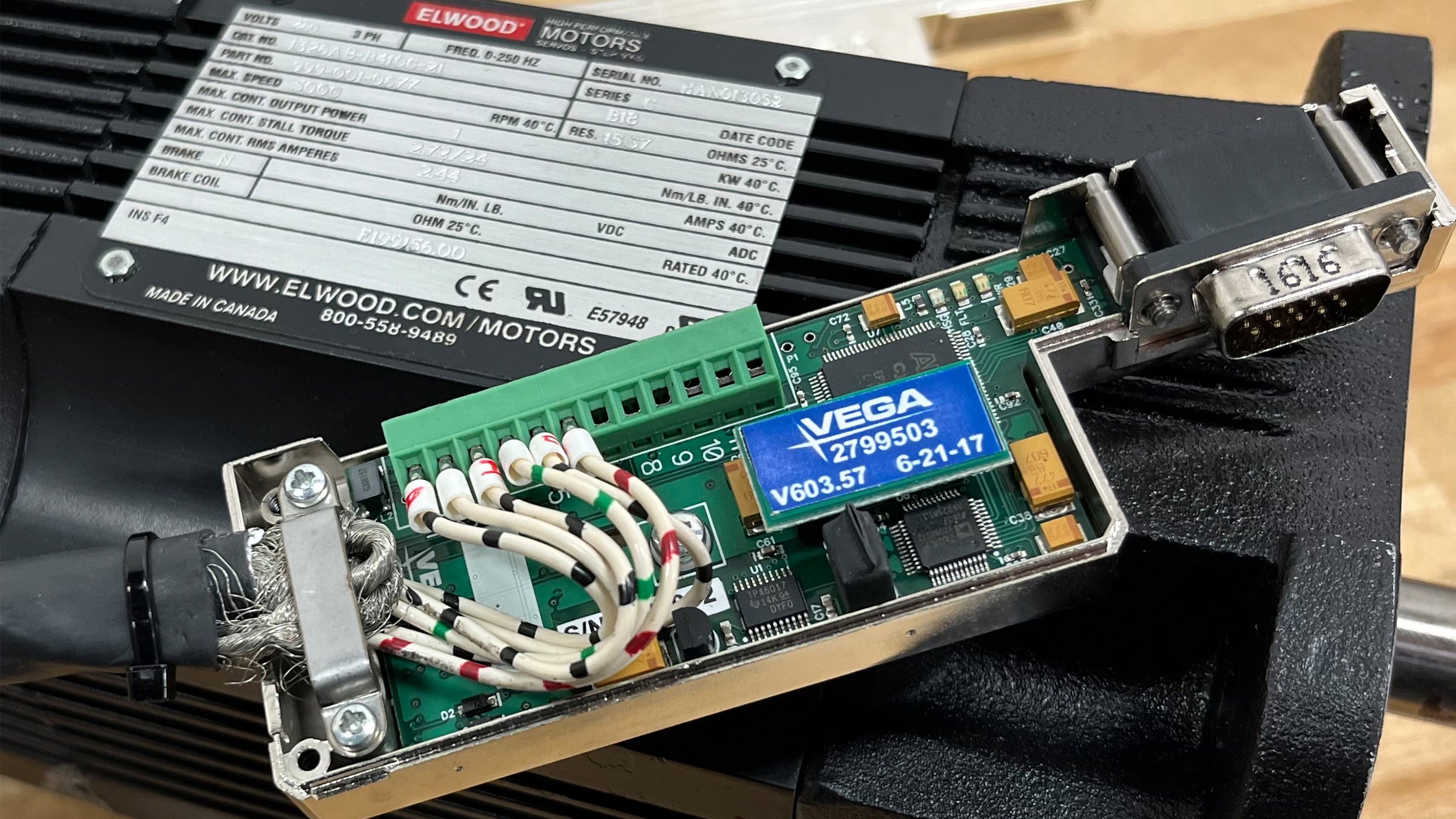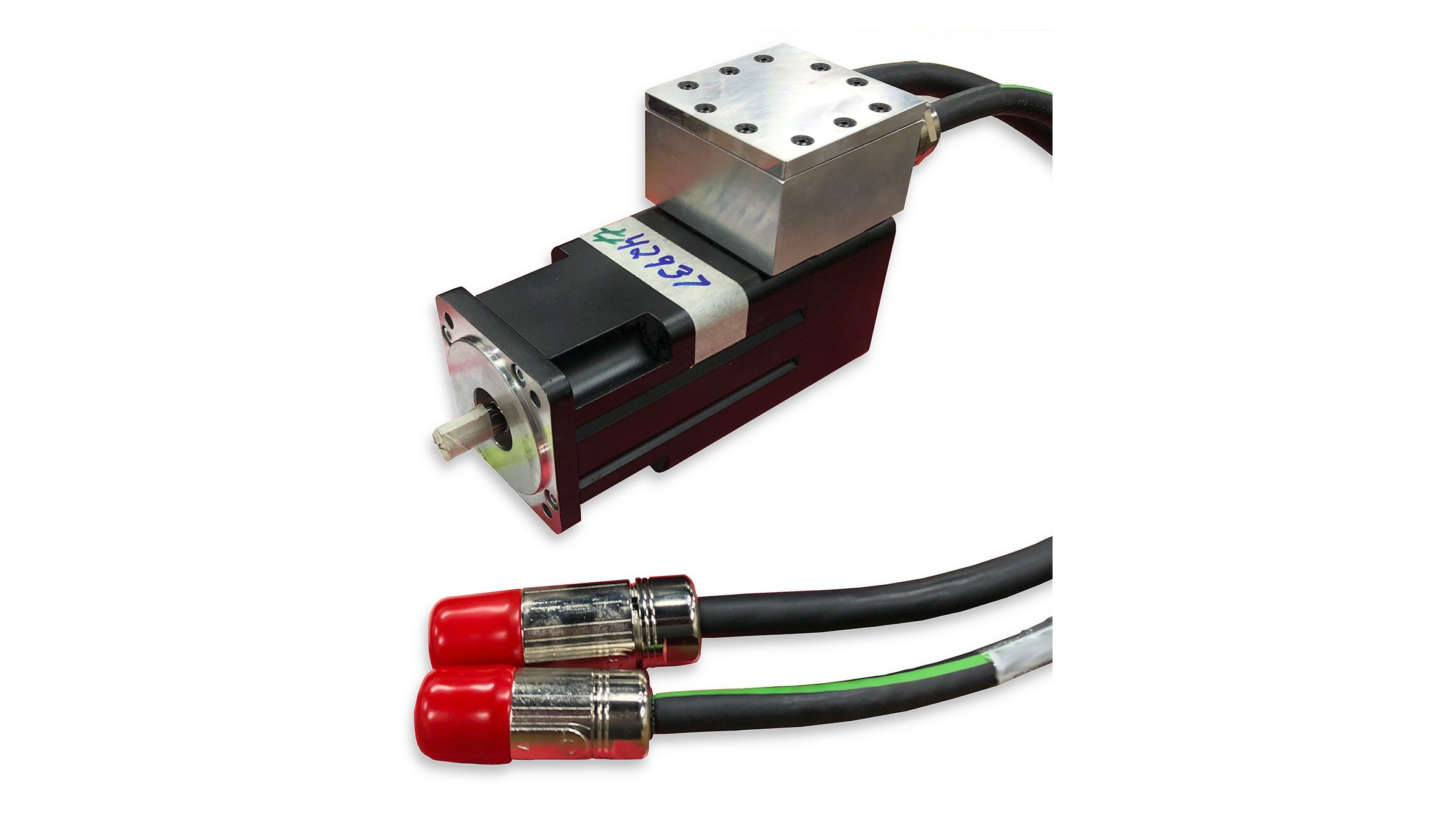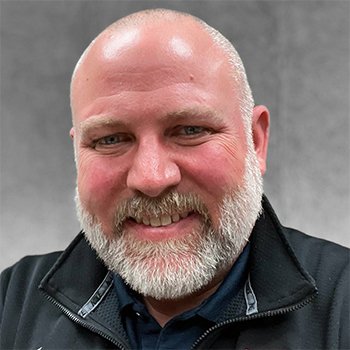What are the options when conceptualizing and developing automated machinery where the environment, materials being processed, or dynamics of the design create conditions outside of typical specifications for servo motors? Similarly, what can be done with successful, productive machinery designs when changes to process parameters result in conditions that are detrimental to servomotor longevity? There is no need to compromise productivity when motion control applications require servomotors to survive continuous high-shock and vibration, high (or low) ambient temperatures, radiation, and other tough conditions.
When demands for lighter more efficient trucks required stamping body panels from aluminum, servo press transfer equipment saw significant increases in shock, in some cases greater than 10G shock on each hit. The impact (pardon the pun) on the 24 servomotors in each press transfer was a 2...3 month working life before requiring replacement and rebuild.
As a Technology Partner known for delivering rugged, long-term, motion solutions, Rockwell Automation reached out to Elwood to evaluate solutions to increase productivity of the machinery in the high shock environment. Elwood developed an upfit program of modifications for MP Series servomotors that offers identical performance characteristics, mounting, and connectivity with no program changes or retuning that resulted in an 18-to-24-month predictive maintenance cycle and massive increase to productivity.
The factory authorized upfit program allows Elwood to analyze the effects of the extreme environments and operating conditions. Elwood’s modifications offer solutions that mitigate early wear and tear (bearing wear, fretting, fatigue/chaffing in internal conductors, brake degradation, connector damage, and contact failure) and eliminate nuisance signal loss faults. Because the program is authorized by Rockwell Automation and Elwood is a Technology Partner, the upfit MPL and MPM Series motors retain their full factory warranty and original output characteristics.
The materials and processing in some industries produce difficult conditions that could benefit from precision motion control and servo automation but can create problems for common components and construction techniques. Forestry product machinery like veneer lathes produces high continuous vibration. Automated freezers operate below thresholds for standard greases/bearings and digital feedback devices. Outdoor applications often have temperature requirements (-50°C to +60°C ambient) that are both above and below typical industrial servo motor operating conditions. Environments with high-energy particles and/or radioactive materials can be detrimental to semiconductors (along with many other materials). The uniquely difficult conditions of these environments make the use of resolvers a reliable choice for position feedback and commutation (field alignment) in servomotors.
Feedback for Harsh Applications
Resolvers are rotary transformers and they are analog devices. Although there are various configurations, typical resolvers have an excitation (primary) winding and two secondary windings that are separated by 90 electrical degrees (often referred to as sine and cosine). Resolvers are rugged and have no moving parts making them ideal for harsh applications. They do not rely on semiconductors that may degrade from high-energy particles. Additionally, when following best practices for electromagnetic interference (EMI) mitigation, resolver feedback can be used reliably with cable lengths of up to 100 meters. With some special considerations, resolver feedback can be implemented successfully in even longer cable runs.
Resolvers offer the capability of detecting a broken or missing connection. Because the expected return signals should be sinusoidal (oscillating), a constant voltage is not a valid state. This benefit can increase the safety integration level of the equipment utilizing resolver feedback.
Since it seems like resolvers solve many problems in motion control systems, why aren’t they the first choice in motion control applications today? There are a few reasons. There was a time when the component cost of a resolver was higher than an incremental encoder. Depending on the devices being compared that may or may not be true. The primary reason encoders are the prime choice are absolute and multi-turn capability, resolution, data retention, and setup/alignment. Modern absolute encoders offer options that retain position in the device even after a power cycle. They offer high-resolution options that benefit the performance of modern high-speed control systems. When well-implemented this can improve machine performance and responsiveness. A last (significant) reason that you don’t see resolvers as the default choice is that they are analog devices and require precision circuits and commonly not included in servo amplifier designs.
Making it all Work
So, what happens when you’ve got a tough application that can benefit from Elwood’s solutions for MP modifications, rugged custom designs, and/or resolver feedback and you have a servo amplifier that doesn’t support a resolver? Both Elwood and Rockwell Automation have partnered with Vega to connect the rugged motor solutions with resolver feedback to modern Kinetix® servo amplifiers.
Vega is a Technology Partner that manufactures resolver-to-digital converters designed to plug into Kinetix® servo amplifiers. There are variants of Vega’s 2799 series converters that match properly with MP series motors, Elwood’s custom motors, and even legacy Bulletin 1326 servomotors from Rockwell Automation Automation/Allen‑Bradley.
The converters look a lot like a 2198 breakout board for wiring motor feedback to a Kinetix® drive. However, they include the electronics to produce sinusoidal excitation, read the return signals and convert them to digital feedback for the Kinetix® amplifier. It is the same process for any motors that Elwood produces with resolver feedback designed for Kinetix® amplifiers. That includes legacy 1326 servo motors.
Modernization Path for 1326 Servo Motors
Elwood and Vega have a great solution for modernizing machinery build with 1326 series motors with resolver feedback and Bulletin 1394 or Kinetix6000 servo amplifiers. For long-term support, Elwood continues to manufacture 1326AS and 1326AB servomotors and plans to continue support (both new and rebuild) indefinitely. Modern Kinetix® 5700, 5300 and 5100 drives can support these resolver feedback motors using Vega’s 2799 series converters. The lifecycle of your machinery just got longer and the modernization path just got simpler and less expensive.




